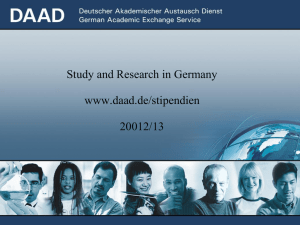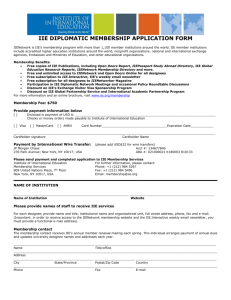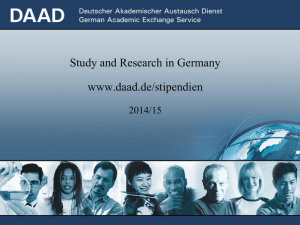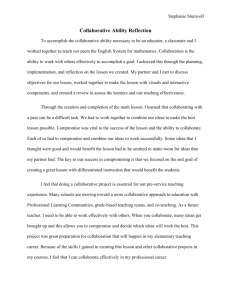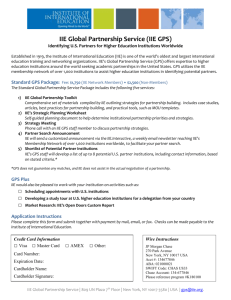See the press release here.
advertisement
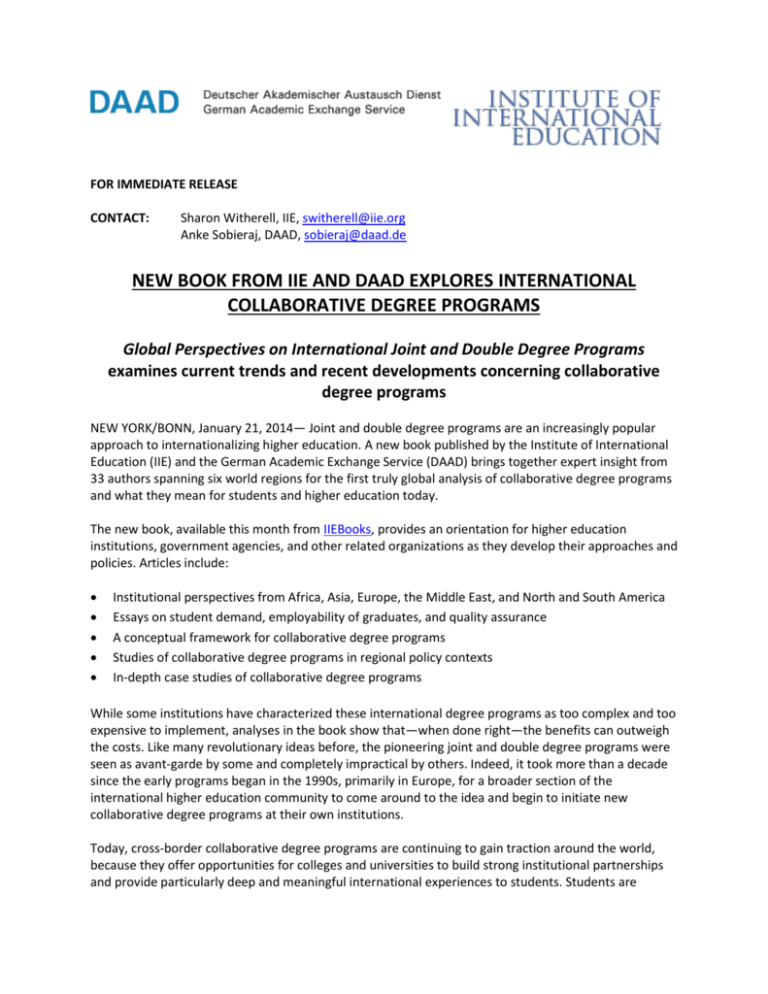
FOR IMMEDIATE RELEASE CONTACT: Sharon Witherell, IIE, switherell@iie.org Anke Sobieraj, DAAD, sobieraj@daad.de NEW BOOK FROM IIE AND DAAD EXPLORES INTERNATIONAL COLLABORATIVE DEGREE PROGRAMS Global Perspectives on International Joint and Double Degree Programs examines current trends and recent developments concerning collaborative degree programs NEW YORK/BONN, January 21, 2014— Joint and double degree programs are an increasingly popular approach to internationalizing higher education. A new book published by the Institute of International Education (IIE) and the German Academic Exchange Service (DAAD) brings together expert insight from 33 authors spanning six world regions for the first truly global analysis of collaborative degree programs and what they mean for students and higher education today. The new book, available this month from IIEBooks, provides an orientation for higher education institutions, government agencies, and other related organizations as they develop their approaches and policies. Articles include: Institutional perspectives from Africa, Asia, Europe, the Middle East, and North and South America Essays on student demand, employability of graduates, and quality assurance A conceptual framework for collaborative degree programs Studies of collaborative degree programs in regional policy contexts In-depth case studies of collaborative degree programs While some institutions have characterized these international degree programs as too complex and too expensive to implement, analyses in the book show that—when done right—the benefits can outweigh the costs. Like many revolutionary ideas before, the pioneering joint and double degree programs were seen as avant-garde by some and completely impractical by others. Indeed, it took more than a decade since the early programs began in the 1990s, primarily in Europe, for a broader section of the international higher education community to come around to the idea and begin to initiate new collaborative degree programs at their own institutions. Today, cross-border collaborative degree programs are continuing to gain traction around the world, because they offer opportunities for colleges and universities to build strong institutional partnerships and provide particularly deep and meaningful international experiences to students. Students are beginning to seek out the international competency currency that such collaborative degrees have to offer beyond the benefits of a degree from a single institution. “As they seek new ways to prepare global citizens and perform cutting-edge research across borders, higher education institutions are increasingly looking to innovations like joint and double degree programs as a promising path into the future,” says Allan Goodman, IIE’s President and CEO. Margret Wintermantel, President of the DAAD, commented that “The joint and double degree programs created today, building upon the models of those first trail-blazers from decades past, are proof that great things are possible when done collaboratively.” Colleges and universities can use these degree programs to broaden their educational offerings, strengthen research collaboration, advance internationalization, and raise the institution’s international visibility and prestige. In some cases, they might even result in increased revenue. On a global level, collaborative degrees provide a chance to build particularly strong strategic academic partnerships between higher education networks around the world, and they have become an increasingly important element of the educational exchange relationship between countries. Global Perspectives on International Joint and Double Degree Programs is edited by Matthias Kuder of Freie Universität Berlin, Nina Lemmens of DAAD, and Daniel Obst of IIE. Obst and Kuder are co-authors of the IIE international survey report “Joint and Double Degree Programs in the Global Context” (2011). Global Perspectives on International Joint and Double Degree Programs is the first in a new “Global Perspectives” series of joint publications by IIE and DAAD that will explore pressing issues in international higher education. It can be ordered from www.iiebooks.org for $39.95. About the Global Perspectives Series The “Global Perspectives” series is a joint effort by the Institute of International Education (IIE) and the German Academic Exchange Service (DAAD) to explore current international education policy issues from a global lens. More information about the Institute of International Education (IIE): www.iie.org More information about the DAAD: www.daad.de




